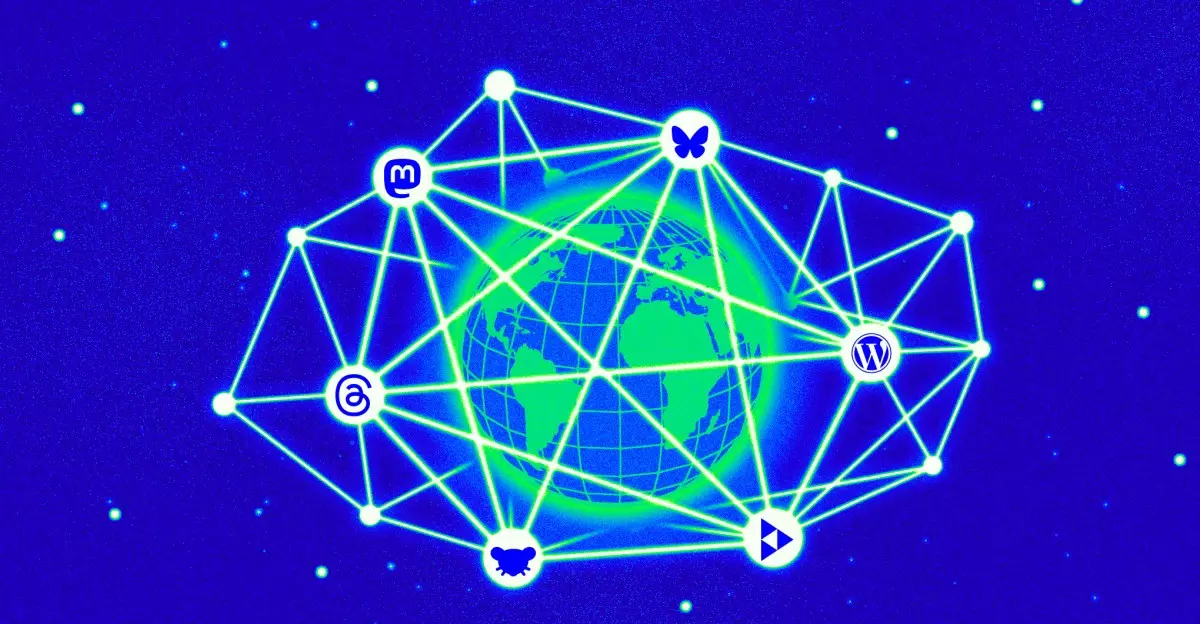The social media landscape is undergoing a significant transformation, driven by innovations that empower users and prioritize decentralized interaction. Bonfire Social, Channel.org, and Bounce stand at the forefront of this movement, introducing cutting-edge tools and applications that challenge the traditional social media paradigm. Collectively, they symbolize the emergence of a more open, engaging, and user-governed internet.
At the recent FediForum conference, the spotlight was on solutions that aim to enhance how individuals interact across various online platforms. Last year, Threads announced its ascent into the fediverse, and this year, the introduction of several compelling projects has proven that the evolution of social networking is not a mere trend but a fundamental shift toward decentralized frameworks.
Bonfire Social: Building Unique Communities
Bonfire Social emerges as an innovative solution designed to empower users to create vibrant digital communities tailored to their own governance and aesthetics. The launch of Bonfire Social 1.0 marks a pivotal moment in this journey, introducing a pre-configured bundle of features that enable users to set up custom feeds, unique profiles, and engaging threaded discussions. This versatility allows communities to flourish under their distinctive rules and styles, fostering user engagement in ways that traditional centralized platforms struggle to replicate.
The flexibility of Bonfire Social is remarkable; it supports not only public interactions but also private collaborations. Upcoming variations of the platform, such as Bonfire Community for private organizations and Bonfire Open Science for academic collaboration, underscore its potential to cater to diverse user needs. By federating with established platforms like Mastodon, Peertube, and Mobilizon, Bonfire Social demonstrates a commitment to interoperability, meaning users can connect and share across different networks effortlessly—a crucial element for a truly decentralized web.
Channel.org: Curating Content like Never Before
As content proliferation continues in the digital realm, finding relevant, high-quality information can often feel burdensome. Enter Channel.org, an innovative service poised to revolutionize the way users curate their social feeds. This platform empowers users to track specific hashtags and accounts, allowing for a personalized social experience that aligns closely with individual interests.
One of the standout features of Channel.org is its ability to filter out undesirable content, including NSFW material and hate speech, thereby promoting a safer and more enriching engagement space. Built on a custom Mastodon server operated by the Newsmast Foundation—a charity dedicated to championing the principles of diversity and inclusion within the fediverse—Channel.org epitomizes the ethos of community-driven social media.
Although currently in an invite-only beta phase, the concept alone is tantalizing. By enabling users to share channels across various networks, including Bluesky and RSS feeds, it encapsulates a critical step in curating the vast ocean of information available online while creating a collaborative environment rich with user-generated content.
Bounce: Bridging Bluesky and Mastodon
Another noteworthy innovation showcased at FediForum was Bounce, an application that facilitates seamless transitions between social platforms. In a world where users are increasingly opting for decentralized alternatives, Bounce allows individuals to migrate their Bluesky accounts over to Mastodon without losing their followers—a significant advancement that addresses a common pain point in the social media migration process.
Developed by A New Social, the creators behind the Bridgy Fed tool, Bounce exemplifies how technology can ease the psychological and social challenges related to platform switching. Users can retain their digital identity and connections, fostering a sense of continuity amid a shifting landscape. This feature not only underscores user autonomy but also embodies the broader goal of enhancing interconnectivity within the decentralized web.
The developments presented by Bonfire Social, Channel.org, and Bounce signal a promising evolution towards a more user-centric social landscape. As these applications encourage greater user agency, community engagement, and content curation, they pave the way for a future where the open web is not just a concept but a dynamic reality. The momentum from initiatives like these could well redefine our online interactions, ushering in an era where decentralized and user-governed systems thrive.

